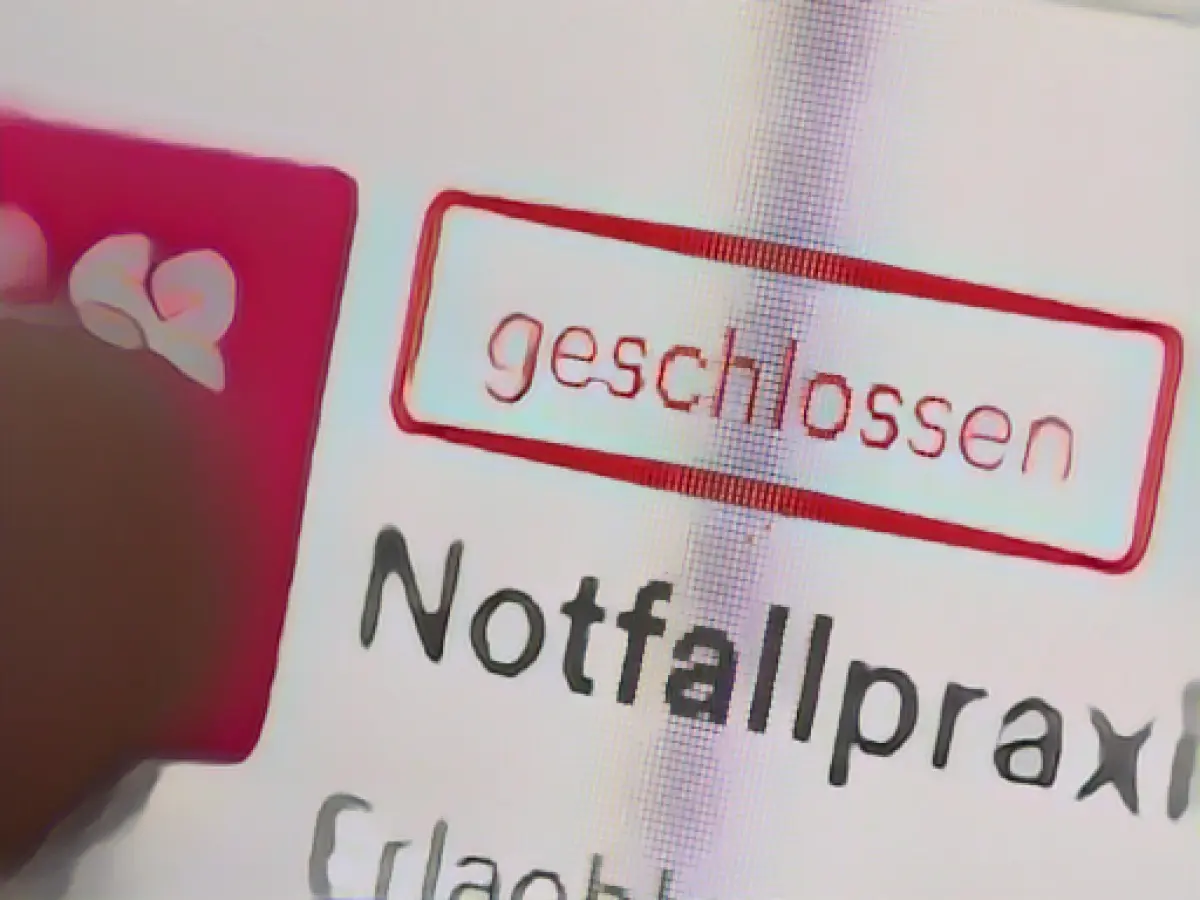"Will take months": Emergency practices restricted
Just under a month after the introduction of an emergency plan for the on-call medical service, the Baden-Württemberg Association of Statutory Health Insurance Physicians (KVBW) does not expect the regular emergency service to return quickly. They are currently working on the new structures, according to a spokesperson. The first key points should be presented at the beginning of December. However, implementation will then have to take place gradually. "We will certainly need a few more months," said the spokesperson.
But even then, the emergency service offering is unlikely to look the same as it did before the emergency brake was pulled by the KVBW due to a ruling by the Federal Administrative Court. When asked whether the aim was to fully restore the scope of the emergency service from before the ruling, the spokesperson replied: "That's not possible." The emergency service would have to be redesigned due to the discontinuation of the so-called pool doctors. "This will also lead to changes." He did not give any details.
Until now, the medical on-call service in Baden-Württemberg was provided by registered doctors with their own practices and around 3,000 pool doctors, who, according to the KVBW, voluntarily took on around 40 percent of the duties in the emergency practices. Pool doctors are doctors who are not licensed by the health insurance funds, i.e. doctors who work in hospitals, who are about to qualify as specialists or who have already retired.
Due to a court ruling, the KVBW announced at the end of October that it would be terminating the activities of the pool doctors with "immediate effect". Because their loss could not be compensated for, the KVBW announced the closure of eight emergency practices and the partial closure of six practices during the week. In addition, the opening hours of almost all other practices have been reduced.
KVBW believes that emergency care is still guaranteed despite the restrictions. "Despite our measures, we still have more than 100 emergency practices open in the state at weekends and on public holidays," said the spokesperson. There is also still a transport service that makes medically necessary home visits. In some practices, however, patients will have to be prepared for longer waiting times. "Of course, more patients are also coming to the emergency practices that are close to the practices that are closed," said the spokesperson.
However, clinicians are also observing that people are increasingly coming to hospital emergency departments. "Our fears have unfortunately come true. According to our members, significantly more patients are seeking help in hospital emergency rooms," said Sylvia Ottmüller, state chairwoman of the Marburger Bund doctors' union. Staff there, who are already overworked, are being stretched further and are reaching their limits. "We are doing our best for the benefit of patients, but we are renewing our demand to the KVBW to fulfill its statutory duty of care and immediately withdraw the restrictions on outpatient emergency services," said Ottmüller.
Hospitals have a similar view of the situation. Matthias Einwag, Managing Director of the Baden-Württemberg Hospital Association (BWKG), complained that the so-called emergency brake would actually only result in losers: "Patients will have to wait longer, the already scarce hospital staff in the emergency departments will be put under even more strain and the already difficult financial situation of hospitals will deteriorate further." There is an urgent need for action.
The ongoing changes in emergency practices due to the termination of pool doctors will require extensive redesign of the emergency service, affecting its operation and scope. Despite the restrictions, hospitals have reported an increase in patients seeking help at their emergency departments, putting additional strain on overworked staff.
Source: www.dpa.com








